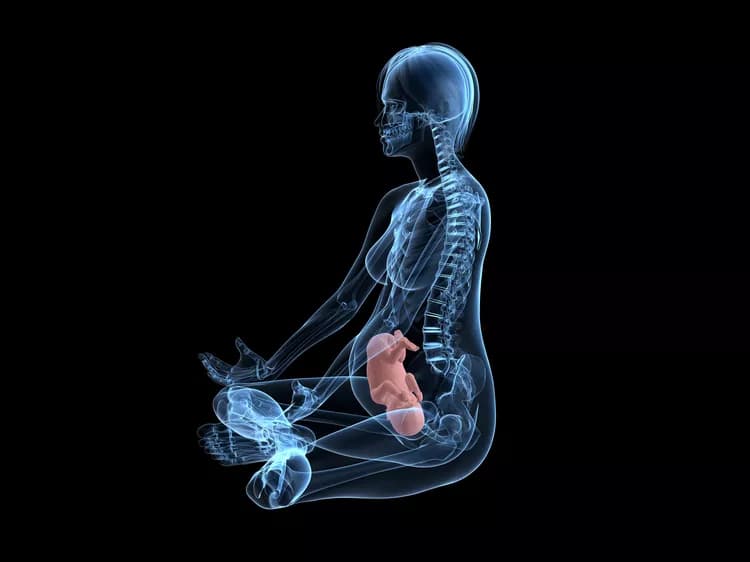
Women, Particularly Minorities, Do Not Meet Nutrition Guidelines Shortly Before Pregnancy
Black, Hispanic and less-educated women consume a less nutritious diet than their well-educated, white counterparts in the weeks leading up to their first pregnancy, according to the only large-scale analysis of preconception adherence to national dietary guidelines.
The study, published in the Journal of the Academy of Nutrition and Dietetics and led by the University of Pittsburgh Graduate School of Public Health, also found that, while inequalities exist, none of the women in any racial and socioeconomic group evaluated achieved recommendations set forth by the Dietary Guidelines for Americans.
Healthy maternal diets have been linked to reduced risks of preterm birth, fetal growth restriction, preeclampsia and maternal obesity.
"Unlike many other pregnancy and birth risk factors, diet is something we can improve," said lead author Lisa Bodnar, Ph.D., M.P.H., R.D., associate professor and vice chair of research in Pitt Public Health's Department of Epidemiology. "While attention should be given to improving nutritional counseling at doctor appointments, overarching societal and policy changes that help women to make healthy dietary choices may be more effective and efficient."
Bodnar and her colleagues analyzed the results of questionnaires completed by 7,511 women who were between six and 14 weeks pregnant and enrolled in The Nulliparous Pregnancy Outcomes Study: Monitoring Mothers to Be, which followed women who enrolled in the study at one of eight U.S. medical centers. The women reported on their dietary habits during the three months around conception.
The diets were assessed using the Healthy Eating Index-2010, which measures 12 key aspects of diet quality, including adequacy of intake for key food groups, as well as intake of refined grains, salt and empty calories (all calories from solid fats and sugars, plus calories from alcohol beyond a moderate level).
Nearly a quarter of the white women surveyed had scores that fell into the highest scoring fifth of those surveyed, compared with 14 percent of the Hispanic women and 4.6 percent of the black women. Almost half -- 44 percent -- of black mothers had a score in the lowest scoring fifth.
The scores increased with greater education levels for all three racial/ethnic groups, but the increase was strongest among white women. At all levels of education -- high school or less through graduate degree -- black mothers had the lowest average scores.
When scores were broken down into the 12 aspects of diet, fewer than 10 percent of the women met the dietary guideline for the whole grains, fatty acids, sodium or empty calories categories.
Approximately 34 percent of the calories -- or energy -- the women consumed were from empty calories. Top sources of energy were sugar-sweetened beverages, pasta dishes and grain desserts. Soda was the primary contributor to energy intake among black, Hispanic and less-educated women. Women with a college or graduate degree consumed more energy from beer, wine and spirits than any other source.
Juices and sugar-sweetened beverages combined for a much larger proportion of vitamin C intake than solid fruits or vegetables for black, Hispanic and less-educated women. The opposite was true for white women or more-educated women.
For all groups, green salad was the only vegetable in the top 10 sources of iron. Green salad and processed cereals were the top two sources of folate for all groups except black women, whose second highest folate source was 100 percent orange or grapefruit juice. Folate and iron are important nutrients for developing fetuses and healthy pregnancies.
"Our findings mirror national nutrition and dietary trends. The diet quality gap among non-pregnant people is thought to be a consequence of many factors, including access to and price of healthy foods, knowledge of a healthy diet, and pressing needs that may take priority over a healthy diet," said Bodnar, also an associate professor of obstetrics, gynecology and reproductive sciences at Pitt's School of Medicine. "Future research needs to determine if improving pre-pregnancy diet leads to better pregnancy and birth outcomes. If so, then we need to explore and test ways to improve the diets for everyone, particularly women likely to become pregnant."
Materials provided by University of Pittsburgh Schools of the Health Sciences. Note: Content may be edited for style and length.
Disclaimer: DoveMed is not responsible for the accuracy of the adapted version of news releases posted to DoveMed by contributing universities and institutions.
Primary Resource:
Bodnar, L. M., Simhan, H. N., Parker, C. B., Meier, H., Mercer, B. M., Grobman, W. A., ... & Silver, R. M. (2017). Racial or Ethnic and Socioeconomic Inequalities in Adherence to National Dietary Guidance in a Large Cohort of US Pregnant Women. Journal of the Academy of Nutrition and Dietetics. DOI: 10.1016/j.jand.2017.01.016
Related Articles
Test Your Knowledge
Asked by users
Related Centers
Related Specialties
Related Physicians
Related Procedures
Related Resources
Join DoveHubs
and connect with fellow professionals

0 Comments
Please log in to post a comment.